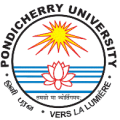This Course is designed for non-science majors & aims to make you a bit more informed as citizens and voters on the many chemistry-related issues.
Course Goals:
Very simply, the primary goal of this course is change the way you see the world, forever. Pretty much everything you can see and touch is made of chemicals or their components. We, our bodies and our world are all made of chemicals: everywhere you look – almost everything you see or touch. So if we can understand even a bit of the physical underpinnings of the behaviour of these chemicals, we have learned some very fundamental and broadly applicable things about ourselves and our world. This helps inform our understanding of our world, life, death and dances in between… at a very deep level. In essence I would like you all to be able to think and “see” as chemists, and see the world from a molecule’s point of view.
More specifically, you will take a little a journey (I’ll come along) …
1) To understand (some of) the basic principles governing the behaviour of matter – the stuff we’re made of: life, rocks, air water, soil, almost everything you see...
2) To learn enough about science, math & chemistry to help you become semi-conversant in it, be more able to spot pseudoscience and become more informed citizens.
3) To be able to access information, use it and communicate it to folks in areas where understanding even a bit a about science & chemistry can make a difference.
4) To enhance your sense of wonder and amazement for the atomic dances we live in. (get a bit of insight into the amazing atomic & molecular dance that is us, our home, our universe.)
Topics:
Unit 0: About Science
Unit I: Particles of Matter, Elements of Chemistry, Subatomic Particles, The Atomic Nucleus
Unit II: How Atoms Bond, How Molecules Mix, How Water Behaves
Unit III: How Chemicals React, Acids and Bases in Our Environment, Oxidations and Reductions Charge the World
Unit IV: Organic Compounds, Nutrients of Life, Medicinal Chemistry, Optimizing Food Production
Unit V: Protecting Water and Air Resources
Learning Plan:
- Lecture session: two hours per week
- Self study: 3 hours per week
- Discussion: 1 hour per week online mode through live text/video/audio
- Q&A: Online mode - at least 10 question and answers have to be posted for grading
Evaluation Method: (consult course tutor)
- Assignments: Five assignments (one for each unit)
- Q&A session: Online mode based on self-study materials
- Discussion and peer evaluation
- Time-constraint examinations - continuous mode
- Time-constraint examination - end-semester
